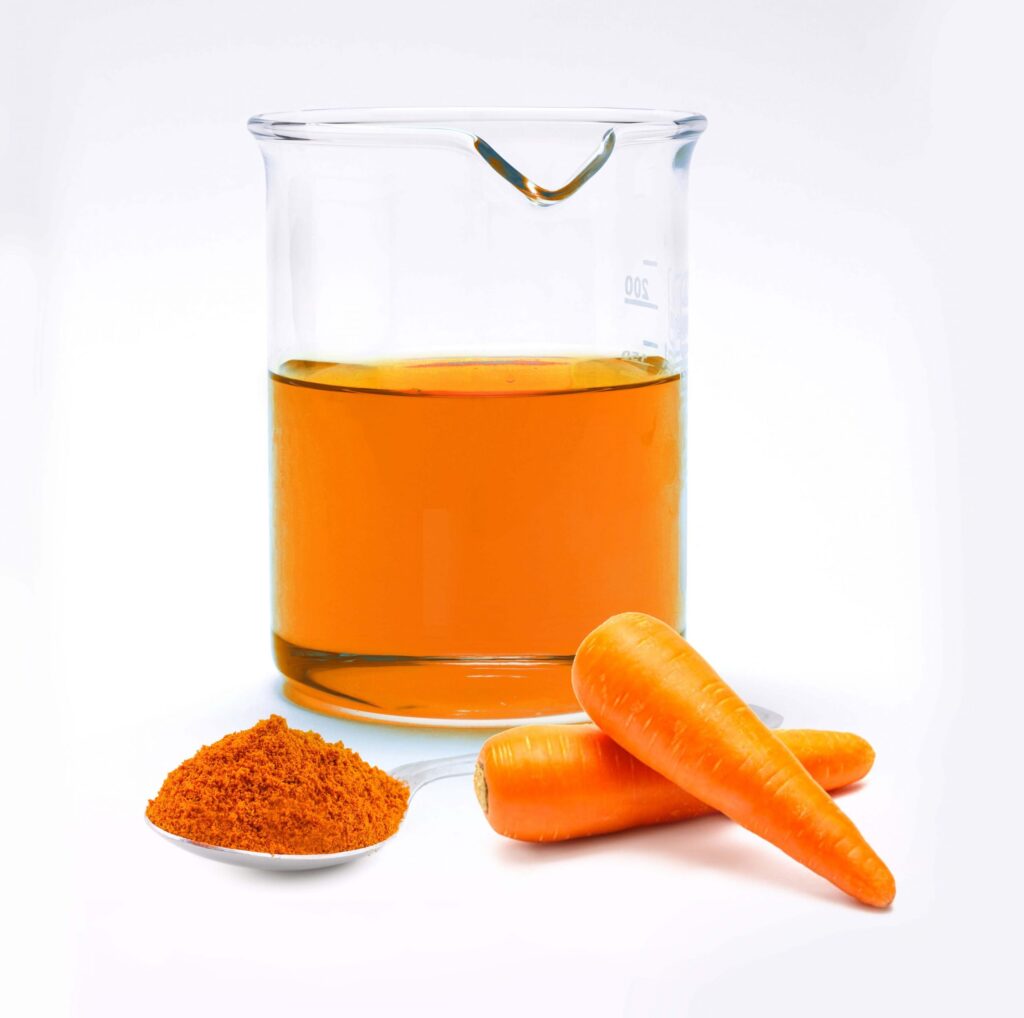what is Beta carotene good for?
What is Beta Carotene?
Beta-carotene is a pigment found in plants that gives them their color. The name beta-carotene is derived from the Latin name for carrot. It gives yellow and orange fruits and vegetables their rich hues. Beta-carotene is also used to color foods such as margarine.
In the body, beta-carotene converts into vitamin A (retinol). We need vitamin A for good vision and eye health, for a strong immune system, and for healthy skin and mucous membranes. Taking big doses of vitamin A can be toxic, but your body only converts as much vitamin A from beta-carotene as it needs. That means beta-carotene is considered a safe source of vitamin A. However, too much beta-carotene can be dangerous for people who smoke. (Getting high amounts of either vitamin A or beta-carotene from food, not from supplements, is safe.)
Beta-carotene is an antioxidant. It protects the body from damaging molecules called free radicals. Free radicals damage cells through a process known as oxidation. Over time, this damage can lead to a number of chronic illnesses. There is good evidence that eating more antioxidants from foods helps boost your immune system, protect against free radicals, and may lower your risk of heart disease and cancer. But the issue is a little more complicated when it comes to taking antioxidant supplements.

Health Benefits of Beta-Carotene
Reduces Risk of Cardiovascular Disease
Beta-carotene is a disease-fighting antioxidant that has been found to lower the risk of cardiovascular disease. Research has found that diets rich in beta-carotene can help prevent heart-related problems because beta-carotene's antioxidant effects help prevent the oxidation of low-density lipoprotein (LDL), or "bad," cholesterol.
Slows Down Rate of Vision Loss
The old-age advice that carrots are good for your eyesight may have some truth. Beta-carotene may protect adults against the development of age-related macular degeneration (AMD), which is a common and chronic (long-lasting) eye condition that results in the gradual loss of central vision.
Enhances the Immune System
Vitamin A has many functions in the body, including supporting immunity. As a provitamin A carotenoid, beta-carotene helps protect and strengthen the functions of the immune system. It helps the immune system aid gastrointestinal function, fight infections, support reproductive health, and ensure proper growth and development.
May Help Lower Risk of Cancer
Beta-carotene has shown promise in reducing the risk of various types of cancer, including breast, prostate, colon, and skin cancer.3 The antioxidant effects of beta-carotene are thought to be primarily responsible for the risk reduction. However, researchers note other antioxidants (such as lycopene) found in the same foods may also contribute to this effect.
How To Take Beta-Carotene
You can take beta-carotene as a supplement in tablet, liquid, capsule, or gummy form. When taken as a supplement, beta-carotene can help prevent oxidized LDL cholesterol, enhance antioxidant activity, and increase the production of immune cells.

Is Beta-Carotene Safe?
Beta-carotene is classified as "generally recognized as safe" (GRAS) by the U.S. Food and Drug Administration (FDA).
U.S. Food and Drug Administration. Select Committee on GRAS Substances (SCOGS) Opinion: Carotene (beta-carotene).
While beta-carotene has been found to lower the risk of certain types of cancers, some research has found that taking high doses of beta-carotene supplements can increase the risk of lung cancer and death among people who smoke, used to smoke, or have been exposed to asbestos.
It is safe for people of any age to take beta-carotene. People who are pregnant or breastfeeding can also take beta-carotene. However, if you are pregnant or breastfeeding, always speak to a healthcare provider before adding any new supplement to your routine.

Can You Take Too Much Beta-Carotene?
While beta-carotene supplements are considered GRAS by the FDA, consuming too much of it can temporarily cause your skin to turn yellow. To prevent this, make sure you are not over-consuming beta-carotene in foods or supplements.
There is no upper limit set by the FDA for beta-carotene intake. Aim to stay within the RDA amounts for provitamin A carotenoids (900 mcg RAE for men and 700 mcg RAE for women), or speak to a healthcare provider about how much beta-carotene is best for you.

Conclusions
Beta-carotene is an orange-red carotenoid pigment found in brightly colored foods such as carrots and broccoli. It's also available as a supplement.
Rich in provitamin A, beta-carotene has potent antioxidant activities that help lower the risk of diseases such as cardiovascular disease and certain types of cancer. Beta-carotene may also help slow the rate of vision loss in those with AMD. It's also beneficial for the proper functioning of the immune system.
References
Anand R, Mohan L, Bharadvaja N. Disease prevention and treatment using β-carotene: The ultimate provitamin A. Rev Bras Farmacogn. 2022;32(4):491-501. doi:10.1007/s43450-022-00262-w
Gul K, Tak A, Singh AK, et al. Chemistry, encapsulation, and health benefits of β-carotene - A review. Cogent Food & Agriculture. 2015;1(1):1018696. doi:10.1080/23311932.2015.1018696
Ebadi M, Mohammadi M, Pezeshki A, Jafari SM. Health benefits of beta-carotene. In: Handbook of Food Bioactive Ingredients. Springer, Cham; 2023.
Li SS, Wang HH, Zhang D. Efficacy of different nutrients in age-related macular degeneration: A systematic review and network meta-analysis. Semin Ophthalmol. 2022;37(4):515-523. doi:10.1080/08820538.2021.2022165
Black HS, Boehm F, Edge R, Truscott TG. The benefits and risks of certain dietary carotenoids that exhibit both anti- and pro-oxidative mechanisms - A comprehensive review. Antioxidants (Basel). 2020;9(3):264. doi:10.3390/antiox9030264

